Filter by
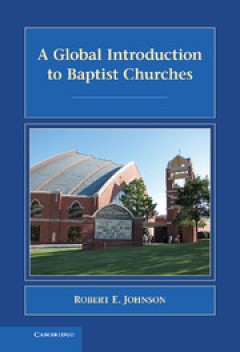
A Global Introduction to Baptist Churches
Coinciding with the four-hundredth anniversary of the birth of the Baptist movement, this book explores and assesses the cultural sources of Baptist beliefs and practices. Although the movement has been embraced, enriched, and revised by numerous cultural heritages, the Baptist movement has focused on a small group of Anglo exiles in Amsterdam in constructing its history and identity. Robert E.…
- Edition
- -
- ISBN/ISSN
- 9780511781148
- Collation
- -
- Series Title
- Introduction to Religion
- Call Number
- -

A Geographical Survey of Africa Its Rivers, Lakes, Mountains, Productions, S…
James MacQueen (1778–1870) was a British geographer and also one of the most outspoken critics of the methods of the British anti-slavery campaign in the 1820s and 1830s. Although he never visited Africa, he became an acknowledged expert on the continent, through reading all available accounts, ancient and modern, as well as interviewing slave merchants while managing a sugar plantation in th…
- Edition
- -
- ISBN/ISSN
- 9781139034562
- Collation
- -
- Series Title
- Cambridge Library Collection - African Studies
- Call Number
- -

A Geographical and Commercial View of Northern Central Africa
James MacQueen (1778–1870) was a British geographer fascinated by the problem of the River Niger. He set out to try to establish (on the basis of accounts by explorers, traders and missionaries), that one and the same river flowed continuously through Africa and into the Atlantic Ocean, thus challenging long-established beliefs that African rivers either disappeared into the sand or terminate…
- Edition
- -
- ISBN/ISSN
- 9781139034579
- Collation
- -
- Series Title
- Cambridge Library Collection - African Studies
- Call Number
- -
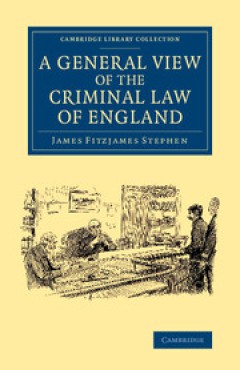
A Gentlewoman's Home The Whole Art of Building, Furnishing, and Beautifying …
Jane Ellen Panton (1847–1923) was the second daughter of the artist William Powell Frith, and an expert on domestic issues. First published in 1896, this is her guide to creating the 'dream house'. In it she draws on the experiences of Deborah and Dick, clients who sought her advice after looking unsuccessfully for a suitable home. The book is based on the notion that turning an existing buil…
- Edition
- -
- ISBN/ISSN
- 9781139381956
- Collation
- -
- Series Title
- Cambridge Library Collection - British and Irish History, 19th Century
- Call Number
- -
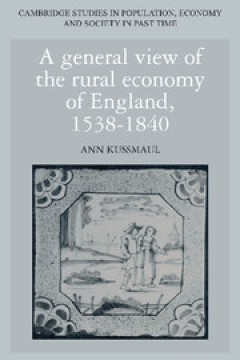
A General View of the Rural Economy of England, 1538–1840
In rural England prior to the Industrial Revolution people generally married when they were not busy with work. Parish registers of marriage therefore form an important and innovative source for the study of economic change in this period. Dr Kussmaul employs marriage dates to identify three main patterns of work and risk (arable, pastoral and rural industrial) and more importantly to show the …
- Edition
- -
- ISBN/ISSN
- 9780511560675
- Collation
- -
- Series Title
- Cambridge Studies in Population, Economy and Society in Past Time
- Call Number
- -
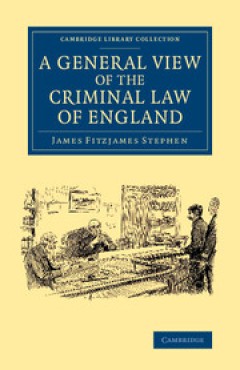
A General View of the Criminal Law of England
The jurist Sir James Fitzjames Stephen (1829–94) published this work in 1863 to provide the intelligent layman with a general account of the workings and principles of English criminal law. He begins with a brief sketch of the development of that law from the Anglo-Saxon period onwards. He then covers the current law on criminal responsibility and the classification and definition of specific…
- Edition
- -
- ISBN/ISSN
- 9781139794886
- Collation
- -
- Series Title
- Cambridge Library Collection - British and Irish History, 19th Century
- Call Number
- -
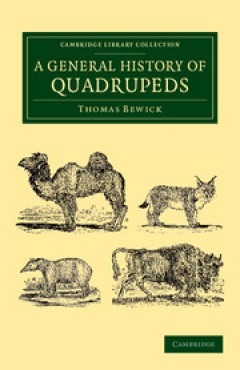
A General History of Quadrupeds
Thomas Bewick (1753–1828) began his career as an apprentice to the engraver and businessman Ralph Beilby (1743–1817). Having entered into a partnership and illustrated more than eighty small books for children, they decided to work together on this natural history, with Beilby drafting the descriptions and Bewick providing wood engravings and textual revisions. It was first published in 179…
- Edition
- -
- ISBN/ISSN
- 9781139854702
- Collation
- -
- Series Title
- Cambridge Library Collection - Zoology
- Call Number
- -
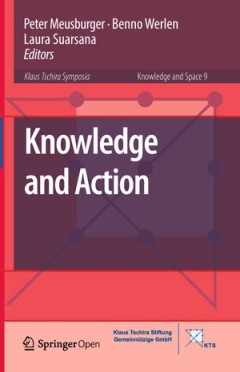
Knowledge and Action
This volume explores interdependencies between knowledge, action, and space from different interdisciplinary perspectives. Some of the contributors discuss knowledge as a social construct based on collective action, while others look at knowledge as an individual capacity for action. The chapters contain theoretical frameworks as well as experimental outcomes. Readers will gain insight int…
- Edition
- -
- ISBN/ISSN
- 9783319445878
- Collation
- X, 300 halaman
- Series Title
- Knowledge and Space
- Call Number
- 020 KNO
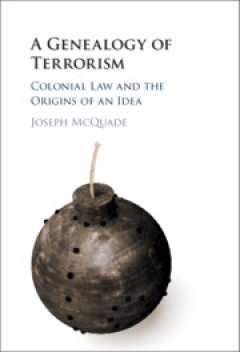
A Genealogy of Terrorism Colonial Law and the Origins of an Idea
Using India as a case study, Joseph McQuade demonstrates how the modern concept of terrorism was shaped by colonial emergency laws dating back into the nineteenth and early twentieth centuries. Beginning with the 'thugs', 'pirates', and 'fanatics' of the nineteenth century, McQuade traces the emerging and novel legal category of 'the terrorist' in early twentieth-century colonial law, ending wi…
- Edition
- -
- ISBN/ISSN
- 9781108896238
- Collation
- -
- Series Title
- -
- Call Number
- -
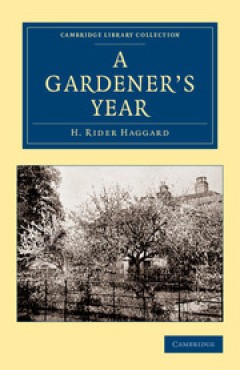
A Gardener's Year
H. Rider Haggard (1856–1925) is best known as the successful writer of adventure stories with exotic backgrounds such as King Solomon's Mines. However, he also served on a number of royal commissions, and in managing his wife's Norfolk estate became a recognised expert on agricultural matters. His A Farmer's Year (1898, also reissued in this series), recounts the work of the farm, together wi…
- Edition
- -
- ISBN/ISSN
- 9781139176651
- Collation
- -
- Series Title
- -
- Call Number
- -
 Computer Science, Information & General Works
Computer Science, Information & General Works  Philosophy & Psychology
Philosophy & Psychology  Religion
Religion  Social Sciences
Social Sciences  Language
Language  Pure Science
Pure Science  Applied Sciences
Applied Sciences  Art & Recreation
Art & Recreation  Literature
Literature  History & Geography
History & Geography